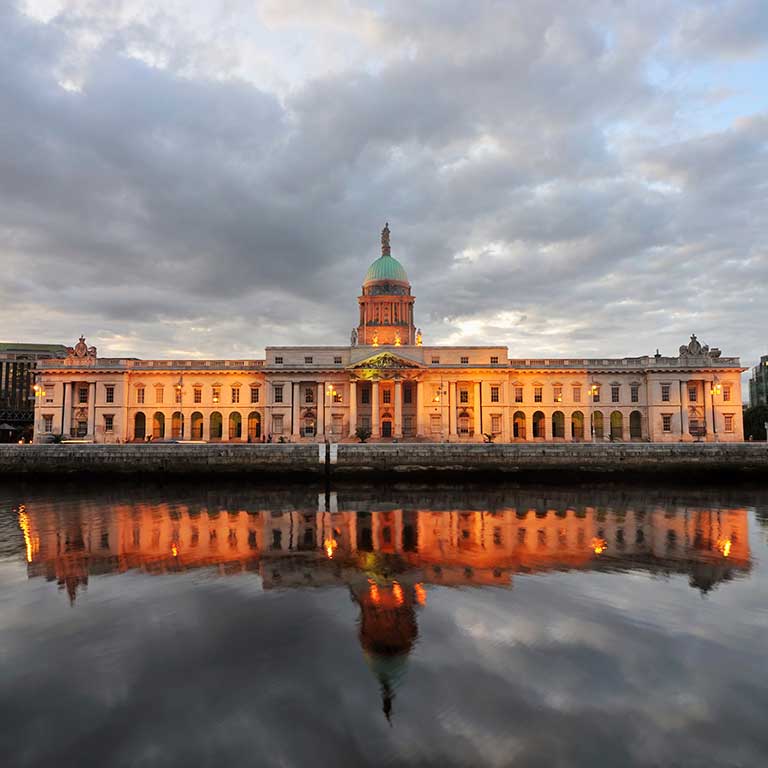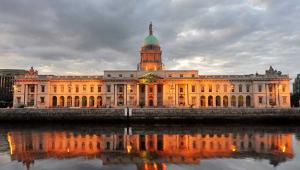Provisional figures from the finance ministry show the deficit reached €12.3bn – about 5.5% of GDP and €13bn below the small surplus achieved in 2019.
The gap was primarily caused by higher spending (25% higher than in 2019, mostly on healthcare and social protection), the ministry explained, rather than lower tax takings.
Although tax revenue fell by 3.6% (€2.1bn) compared to 2019, the government predicted last April that it would fall by 16%.
Income tax fell by just 1% despite lockdown measures, because the workers most affected by the pandemic pay a relatively low amount of total income tax takings.
Corporation tax receipts rose by about 8.5% (€945m), as sectors such as technology, pharmaceuticals and financial services remained resilient through the year.
This tax makes up a large part of Ireland’s total takings thanks to its comparatively low rate, leading to many large multinational businesses placing their headquarters in the republic.
Finance minister Paschal Donohoe referred to the large schemes the government has rolled out to counteract the economic consequences of Covid-19, such as €5bn in pandemic unemployment payments and €4.1bn of wage subsidies, alongside a €3.4bn increase in health spending.
“The strength and depth of the government’s response is unprecedented in our country’s history,” said Donohoe.
“Although we once again enter a difficult period of tough but necessary restrictions, today’s figures point to some positive underlying trends in the economy.
“The government will continue to use the resources of the state to protect the most vulnerable, support businesses and sustain incomes until our country emerges from this pandemic even stronger than before.”
Minister for public health and reform Michael McGrath said high spending will continue into 2021, with the year’s budget having been based on a ‘no vaccine’ assumption, with resources available to carry on the country’s response to the virus.














